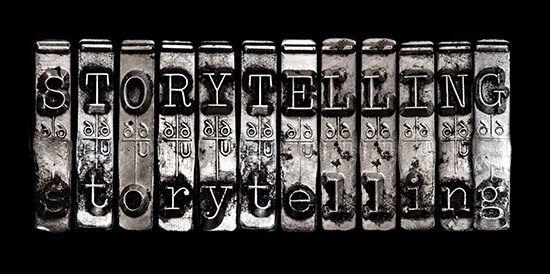
Have you ever wondered why one brand becomes famous while its competition stagnates?
What creates that additional interest pulling us toward a specific product?
The answer lies in corporate storytelling.
Products are nothing more than specific items allowing us to fulfill our needs.
Sometimes, several brands may possess almost identical products.
In these cases, it is necessary to establish an emotional relationship with a consumer.
And the best way to do that is by using corporate storytelling.
This method of content creation allows you to establish an emotional bond with a reader or viewer.
Is Corporate Storytelling Effective On Your Content?
Traditional content marketing shows us all the benefits of purchasing a product.
It is a plain and straightforward message, but if you think about it, it’s the same as looking for a needle in a hay stack.
Naturally, your competition will make a similar message and the success of your campaign will be based on sheer luck.
Corporate storytelling teaches us that your consumer needs to care about your product.
It is based on the classic storytelling concept where the hero overcomes obstacles and accomplishes his goal.
When addressing the audience, the content marketer communicates directly with you, the viewer.
You are placed in the main role.
Additionally, according to the tale, the only way to vanquish evil is by using the company’s product.
This way, everything is tied together and you start feeling the story as very personal.
Bear in mind, the hero needs to be an ordinary person so you can easily relate to them.
Similarly, all the problems our hero encounters are completely ordinary.
You need to recognize these issues and think, “Hey, these are precisely the same problems I encounter each and every day!”
After viewing the content, you will realize how our hero was helped by this product, and will be led to believe that the same product can change your luck.
What is Necessary to Tell a Good Story?
- Ordinary hero with ordinary problems. The reader needs to relate to this person and their issue. Furthermore, it’s better to target an audience who is likely to buy your product.
- Drama. Any type of tale revolves around drama. You must have ups and downs, anticipation, and a resolution. You need to take your reader on an emotional roller-coaster ride. Otherwise, they simply won’t care about the story.
- Use of the product and happy ending. Needless to say, your product needs to be the centerpiece, and the hero needs to be victorious.
- Consistent story. This is especially important for companies using various types of content to promote their products. Everything must be synchronized and aimed towards the same goal. If you’ve already chosen a strategy, make sure to stick with it.
- Logical and truthful story. Even though you are allowed to take certain creative liberties, your story needs to be logical and truthful, representing the brand in a proper light. Someone who is an advocate for a healthy environment cannot be placed in the center of pollution scandal. Your product needs to show its real potential. If you do manage to sell a product based on the story alone, and if the consumer then realizes that you were advertising falsely, it may come back to haunt you.
Conclusion
As you see, corporate storytelling is not something you can come up with overnight.
It is a powerful tool that needs to be a part of your overall strategy.
You need to use it throughout your marketing.
Even though it may require substantial effort, it is the best way to position your brand and invoke customer loyalty.
image credit: shutterstock